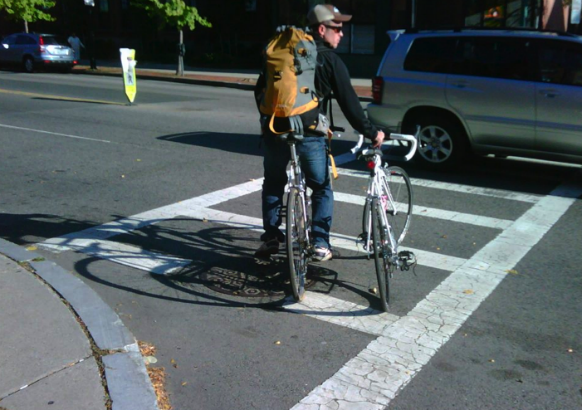"And if x location is having issues....why not "install" the station a block away while the details get worked out"
Money. City pays operator to launch the system which consists of 61 stations. If they choose to place 4 of the 61 in temporary locations the system is still fully "launched" because 61 stations have been installed. If at that point the city decides to move 4 stations to a new location they have to pay the operator to do so. The city cannot make the operator move stations without paying them unless there is some sort of public safety issue.
I dont know what the final Boston contract said, but DC contract said the operator could be asked to move the stations x amount of times (might have been 4) for free. Did Boston not include this common-sense line?
If the Bixi stations are so bad why do they keep winning all the major systems up for grabs recently? London, NY, DC, Boston. The cost of a Bixi system and a B-cycle system is roughly the same. Why can't B-Cycle win?
I didnt say the Bixi stations are bad. Theyre much better than the Clearchannel ones, and theyre extremely similar to the B-cycle ones. B-cycle does offer some GPS features which Bixi doesnt (lets each rider track their actual miles) and has a basket, which in my opinion, is superior.
Also, their lights stay on when the bike stops, which Bixi doesnt make standard.
But again, these are minor preference points. Perhaps you prefer the Bixi basket system. It's really not a big deal. (I find the Velib basket the best).
So why does Bixi win? Well, thats an incredibly complicated question, and it's impossible to fully know without reading all the contract submissions. Boston had 3 bids, NYC had 6. DC, I believe, went directly to Bixi without a bidding process, but I may be wrong.
However, one major reason is that government officials do not want failure. Failure means problems at election time. So what is
perceived as the safest bet is a big deal.
Youll notice that Bcycle has won many bids.
Youll also notice that the Bcycle wins and the Bixi wins are both clustered geographically.
This isn't a coincidence. A high weighting is placed behind "what is the next city over doing"
According to their wiki page:
Broward County, Florida;
Chicago, Illinois;
Denver, Colorado;
Des Moines, Iowa;
Hawaii;
Louisville, Kentucky;
Madison, Wisconsin;
Omaha, Nebraska;
San Antonio, Texas;
Spartanburg, South Carolina.
Ignoring Florida and Hawaii, they have a distinct regional bias.
If Tampa sets up a system, odds are, it will be Bcycle because thats what Miami Beach has. Salt Lake city would probably favor them as well.
If Philly sets up a system, Id put my money on Bixi. Same with Baltimore.
Both manufacturers knew Boston was a big deal because of the looming NYC bid. Alta/Bixi was able to say "come visit us in Boston and DC". Bixi saying "come to Denver" holds less sway.
Meanwhile, those other 4 bidders? They're screwed. They might get college contracts, but no city will pick Veolia because theyre a "what if?" pick when these two are a "sure thing"
Bixi also has an advantage that they have the consistent partnership with Alta. I believe B-cycle goes with local operators in each market. That should be a strength, but hasn't been.
You see the exact same thing around the world.
Look at this incomplete listing of who sells to which city.
http://en.wikipedia.org/wiki/List_of_bicycle_sharing_systems
Extremely strong geographic bias.
Most French systems are the Velib people, most German systems are the nextbike people, etc etc. Which system is better? It doesnt actually matter, it's which system is safer and more "local". Montreal was more local to Boston than Wisconsin.


